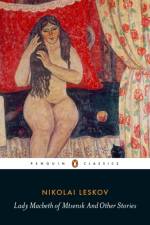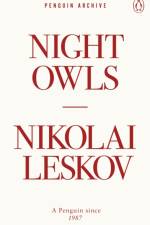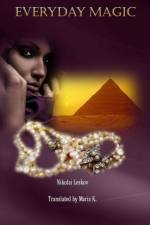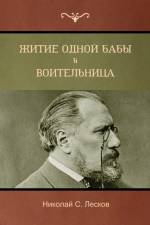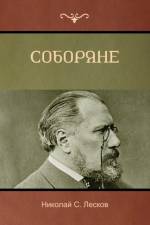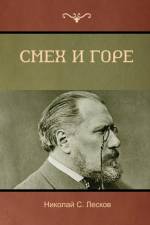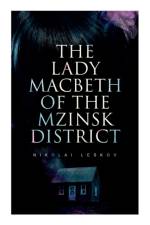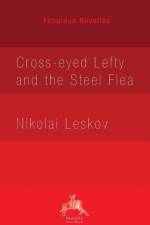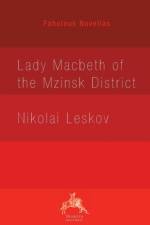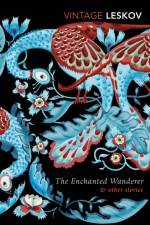av Nikolai Leskov, а, и, m.fl.
301
¿¿¿¿¿¿¿¿ ¿¿¿¿¿¿¿¿¿ ¿¿¿¿¿¿¿ (4 [16] ¿¿¿¿¿¿¿ 1831, ¿¿¿¿ ¿¿¿¿¿¿¿¿, ¿¿¿¿¿¿¿¿¿ ¿¿¿¿¿¿¿¿ - 21 ¿¿¿¿¿¿¿ [5 ¿¿¿¿¿] 1895, ¿¿¿¿¿-¿¿¿¿¿¿¿¿¿) - ¿¿¿¿¿¿¿ ¿¿¿¿¿¿¿¿ ¿ ¿¿¿¿¿¿¿¿¿, ¿¿¿¿¿¿¿¿¿.«¿¿¿¿¿¿¿ ¿¿¿¿¿¿¿ ¿¿¿¿ ¿¿¿¿¿¿¿¿ ¿¿¿¿¿ ¿¿¿¿¿¿¿ ¿¿ ¿¿¿¿¿¿¿ ¿¿¿¿¿¿¿¿¿ ¿ ¿¿¿¿¿¿¿ ¿¿¿¿ ¿¿¿¿¿¿ ¿ ¿¿¿¿ ¿¿¿¿ ¿¿¿¿¿¿¿ ¿¿¿¿¿ ¿¿¿¿¿, ¿¿¿¿¿ ¿¿ ¿¿¿¿», - ¿¿¿¿¿ ¿. ¿. ¿¿¿¿¿¿¿¿¿-¿¿¿¿¿¿¿ (1926).¿¿¿¿¿¿¿ ¿¿¿¿¿¿¿¿¿ ¿¿¿¿¿¿ ¿¿¿¿¿¿¿ 4 [16] ¿¿¿¿¿¿¿ 1831 ¿¿¿¿ ¿ ¿¿¿¿ ¿¿¿¿¿¿¿¿ ¿¿¿¿¿¿¿¿¿¿ ¿¿¿¿¿ (¿¿¿¿ ¿¿¿¿ ¿¿¿¿¿¿ ¿¿¿¿¿¿¿¿ ¿¿¿¿¿¿¿¿¿¿¿¿¿ ¿¿¿¿¿¿ ¿¿¿¿¿¿¿¿¿ ¿¿¿¿¿¿¿). ¿¿¿¿ ¿¿¿¿¿¿¿, ¿¿¿¿¿ ¿¿¿¿¿¿¿¿¿¿ ¿¿¿¿¿¿ (1789-1848), ¿¿¿¿¿¿¿ ¿¿ ¿¿¿¿¿¿¿¿ ¿¿¿¿¿, ¿¿ ¿¿¿¿¿¿ ¿¿¿¿¿¿¿ ¿¿¿¿¿¿¿¿¿¿, ¿¿¿ «…¿¿¿¿¿¿¿, ¿¿¿¿¿¿¿¿¿¿¿¿¿ ¿¿¿¿¿ ¿ ¿¿¿¿¿¿¿¿ ¿¿¿¿¿¿¿¿¿¿». ¿¿¿¿¿¿ ¿ ¿¿¿¿¿¿¿¿ ¿¿¿¿¿¿, ¿¿ ¿¿¿¿¿¿¿¿ ¿¿ ¿¿¿¿¿¿ ¿ ¿¿¿¿¿¿¿¿¿ ¿¿¿¿¿¿¿¿¿ ¿¿¿¿¿¿, ¿¿¿ ¿¿¿¿¿¿¿¿¿¿ ¿¿ ¿¿¿¿¿, ¿¿¿¿¿¿¿¿ ¿¿¿¿¿ ¿¿ ¿¿¿¿¿¿¿¿¿¿¿¿¿ ¿¿¿¿¿¿¿¿¿¿, ¿, ¿¿ ¿¿¿¿¿¿¿¿¿¿¿¿¿ ¿¿¿¿¿¿¿¿¿¿¿¿¿, ¿¿¿¿¿¿¿¿ ¿¿¿¿¿¿¿¿¿ ¿¿¿¿¿¿¿¿¿¿¿¿¿¿¿ ¿¿¿¿¿¿¿¿¿¿¿, ¿¿¿¿¿¿¿¿¿¿ ¿¿¿¿¿¿¿¿¿¿¿ ¿¿¿¿¿¿¿ ¿¿¿¿. ¿¿¿¿, ¿¿¿¿¿ ¿¿¿¿¿¿¿¿ ¿¿¿¿¿¿¿ (¿¿¿¿¿¿¿¿¿¿ ¿¿¿¿¿¿¿¿¿) (1813-1886) ¿¿¿¿ ¿¿¿¿¿¿¿ ¿¿¿¿¿¿¿¿¿¿¿ ¿¿¿¿¿¿¿¿¿¿¿ ¿¿¿¿¿¿¿¿¿. ¿¿¿¿ ¿¿ ¿¿ ¿¿¿¿¿¿ ¿¿¿¿ ¿¿¿¿¿¿¿ ¿¿ ¿¿¿¿¿¿¿¿¿¿¿¿¿ ¿¿¿¿¿¿¿¿¿ ¿¿¿¿¿¿¿¿¿, ¿¿¿¿¿¿ - ¿¿ ¿¿¿¿¿¿¿ ¿¿¿¿¿¿¿¿¿¿¿¿. ¿¿¿¿¿¿¿ ¿¿¿¿, ¿¿¿¿¿¿¿, (1837-1909) ¿¿¿¿ ¿¿¿¿¿¿, ¿¿¿¿ ¿¿¿¿¿¿ ¿¿¿¿¿¿¿ ¿¿¿¿¿¿¿ ¿¿¿¿¿¿¿¿¿¿¿ ¿¿¿¿. (wikipedia.org)

